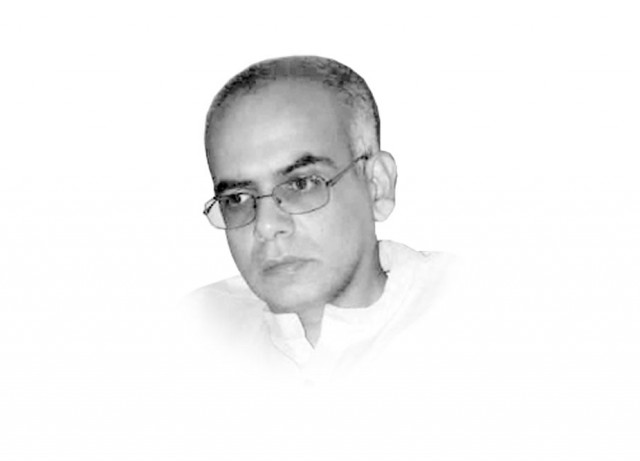Rethinking Pak-Saudi relations
It is about time we reasserted our ideological independence, and resisted being swayed by Saudi strategic interests

The writer is author of the book Development, Poverty and Power in Pakistan, available from Routledge
Pakistan has had a close relationship with Saudi Arabia for decades. Pakistan has been the recipient of aid from oil-rich Saudi Arabia more than any country outside the Arab world since the 1960s. Saudi Arabia has also been the destination of choice for a large proportion of Pakistani economic migrants. It has provided Pakistan oil concessions and direct funds to shore up its foreign exchange reserves in times of need.
In turn, Saudis have been receiving military training from the Pakistani Army and air force personnel. Pakistan Air Force pilots even flew Saudi jets to repulse a South Yemeni incursion into the kingdom’s southern border back in 1969. During the 1970s and 1980s, up to 15,000 Pakistani troops were stationed in the kingdom, near the Israeli-Jordanian-Saudi border. The role of Saudi funding to train mujahideen to repulse the Soviet invasion of Afghanistan is also no hidden fact.
Saudi Arabia provided refuge to the current prime minister of the country, while he was in exile during the military rule of General (retd) Pervez Musharraf. However, some developments indicate that the relationship between the countries is perhaps undergoing a period of transition and potential recalibration. One illustration of such change is the recent Pakistani parliament’s decision not to join a Saudi-led nine Arab nation effort to quell a Houthi rebellion in Yemen. Pakistan’s sagacious decision seems motivated by its reluctance to commit its already burdened armed forces to a conflict outside its own sphere of influence as well as its hesitation to antagonise Iran, a relationship which could become increasingly important now that international sanctions against Iran are being lifted. Our foreign secretary also dismissed speculation that Islamabad would provide Riyadh with nuclear weapons or know-how in response to what the Saudis might view as a weak deal on Iran’s nuclear programme.
Pakistan’s new-found neutrality is refreshing, given our longstanding embroilment in a proxy contestation between Iran and Arab states, especially Saudi Arabia, through their funding of sectarian madrassas. Saudi Arabian donors have been blamed for providing the most significant source of funding to militant and sectarian groups worldwide. Leaked diplomatic cables of the US secretary of state in 2009 endorsed this view.
Since the Taliban attack on the Army Public School, our government has renewed its commitment to curb foreign funding of madrassas. Saudi Arabia’s role in this regard has also become the subject of contention. Apparently, Saudi attempts to exert influence in our education sector are evidently not confined to the madrassa system alone. A new Wikileaks Saudi embassy cable indicates how the Saudis got upset when the president of the International Islamic University in Islamabad (IIUI) invited the Iranian ambassador in Pakistan to serve as guest of honour during its cultural week celebrations. The removal of the IIUI president and appointment of a Saudi president in his place has stirred up further controversy.
Pakistan should, by no means, forgo the enormous economic, financial and energy cooperation, which close ties with Saudi Arabia facilitate. Yet, it is about time we reasserted our ideological independence, and resisted being swayed by Saudi strategic interests, which have made us a pawn in the Iran-Saudi conflict, in turn exerting an unbearable toll of sectarian conflict currently plaguing the length and breadth of our nation.
Published in The Express Tribune, August 7th, 2015.
Like Opinion & Editorial on Facebook, follow @ETOpEd on Twitter to receive all updates on all our daily pieces.














COMMENTS
Comments are moderated and generally will be posted if they are on-topic and not abusive.
For more information, please see our Comments FAQ